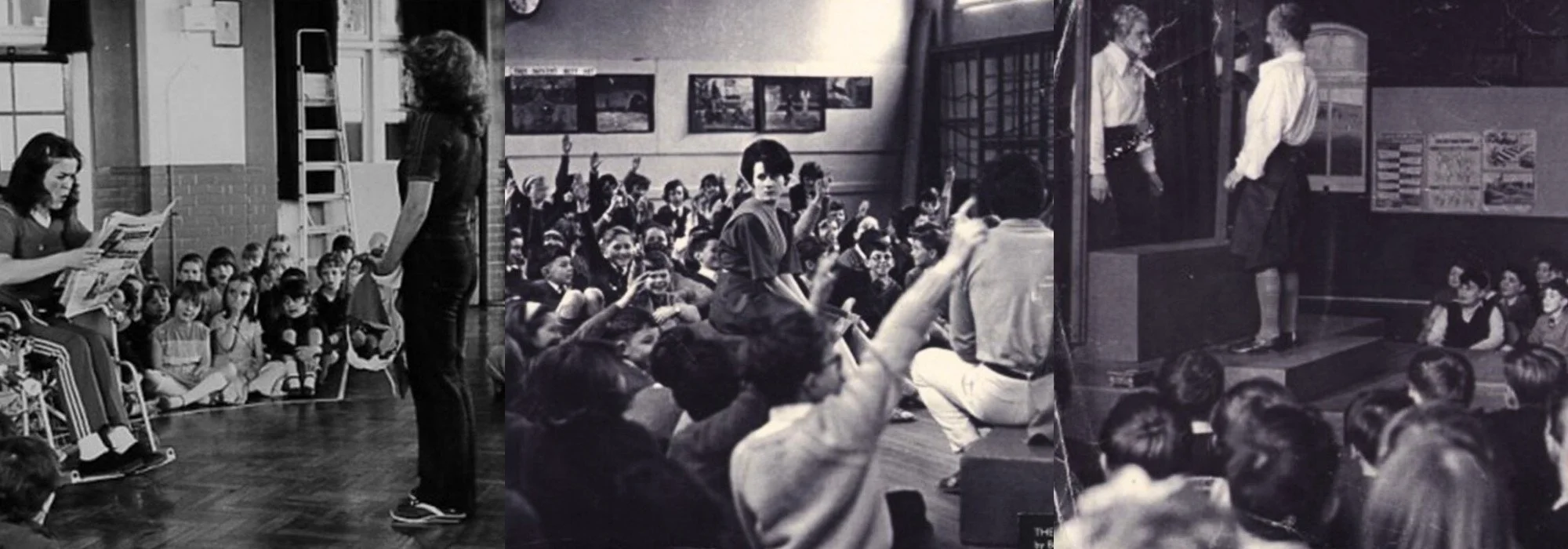
History Snapshot:
The Festival of Peace
Thatcher Minister trys to shoot our Peace Plays down!
One of the most controversial and political moments from our history – and one that exemplifies our commitment to activism – is the Festival of Peace in the early 1980s.
Set up by our Artistic Director at the time, David Johnston, the festival ran from 1982 to 1983 amidst a national climate that had fear of nuclear war at the forefront, both from the Cold War with the Soviet Union and the backlash to the Falkland’s War.
David Johnston had already begun to stage more issue-based work in primary and secondary schools, tackling issues that opposed the Thatcher government (including a retelling of The Pied Piper with a Mayor that had unashamed resemblance to Margaret Thatcher).
“By 1981 the work had become young people’s theatre as the best TIE teams were doing it at that time – naturalistic, about young people and seeing the world from young people’s eyes.” (David Johnston)
For the Festival of Peace, Theatre Centre toured a trilogy of plays by playwright David Holman:
Peacemaker - a play about two groups, known as the Reds and the Blues, divided by a wall. The play explored the prejudice that each group had against the other, before eventually finding common ground between them.
Susumu’s Story - a play set in Hiroshima in the mid 1940s. Depicting Japanese families before and after the atomic bomb was dropped, it was a tragic and hard-hitting piece which ended with a plea to the audience to oppose atomic bombs.
1983 - set in a US Air Force base in Suffolk, the play explored the installation of the first cruise missiles in Britain that year, an event which sparked huge protests around the country.
In reaction to news that the plays were going into schools in Waltham Forest, Norman Tebbit (Employment Secretary in Thatcher’s government) condemned them as propaganda for nuclear disarmament, and during a debate in the House of Commons he implored parents in his district to stop their children from going to school and seeing the performance.
“at best irrelevant and at worst decidedly harmful” was Tebbit’s description of the plays. While The Daily Mail and The Sun backed Tebbit, Theatre Centre was supported by others in the national press, as well as local authorities and the Arts Council.
Ultimately the Festival of Peace went ahead. The Times Education Supplement described 1983 as “responsible and serious without ever being dull” while Peacemaker went on to be performed internationally in countries including Brazil, Canada, and Japan.
For more information, see the Unfinished Histories website.
“I would strongly advise parents of children involved to protest vigorously and withhold them from school today... These plays are at best irrelevant and at worst decidedly harmful.”
“We just finished the first show, which played to a packed house... The plays are delightful... They are not about unilateral disarmament but about the search for peace.”
“1983 is both responsible and serious without ever being dull…a detailed set of Teacher’s Notes prepared by Theatre Centre set the whole thing in context and dealt scrupulously fairly with the nuclear arms debate.”
1983, a play by David Holman


